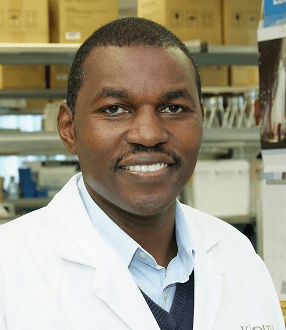Thumbi Ndung’u, investigador y Max Planck Research Group Leader en el Africa Health Research Institute (AHRI) de Durban (Sudáfrica) ha participado en una de las mesas de Básica del X Congreso GeSIDA para abordar ‘Strategies on HIV cure: lesions from hyperacute HIV infection studies’.
Based on the paper that will present in GeSIDA, what lessons should we learn from cases of hyperacute HIV infection to advance in the fight against HIV?
First of all, our research demonstrates that there is still unacceptably high transmission of HIV infection in KwaZulu-Natal, South Africa especially among young women. This is sadly the case in many other countries in sub-Saharan Africa and among certain key population groups globally.
Our research also shows that treatment of acute HIV infection is beneficial because it quickly suppresses viremia and preserves immune cells. However, treatment of acute infection does not prevent seeding of the reservoir and there is virus persistence in lymph nodes. This indicates that long-term remission without antiretroviral therapy in acutely treated individuals will be difficult without additional interventions.
You are from South Africa, one of the countries hardest hit by AIDS and from which more lessons can also be drawn. What are the main milestones recently achieved in the fight against the virus in your environment? Of these measures, do you think that some can be extrapolated and be useful to countries such as Europeans?
The good news is that a lot of people are now benefiting from antiretroviral therapy. However, prevention is still a problem, both in Africa and Europe. Therefore, we need to continue to fund research to develop better prevention technologies and cure strategies.
Your work focuses on the design of strategies on HIV cure. What are your main lines of research and what are the most remarkable results?
We find that treatment of acute infection quickly suppresses the virus and preserves the immune system. This is also a reduction in reservoir, although this is slow and not very dramatic. We also find that proteins known as broadly neutralizing antibodies are very good at blocking the early virus. Overall, we think that our work indicates that cure strategies using broadly neutralizing antibodies and other immune modulators should be tried in cure strategies in early treated people.
Is it feasible to achieve a HIV functional cure in the medium term through your research?
This is certainly our hope! However, we are only cautiously optimistic and we need to move quickly to the clinic to begin testing strategies that are showing promise in laboratories.
